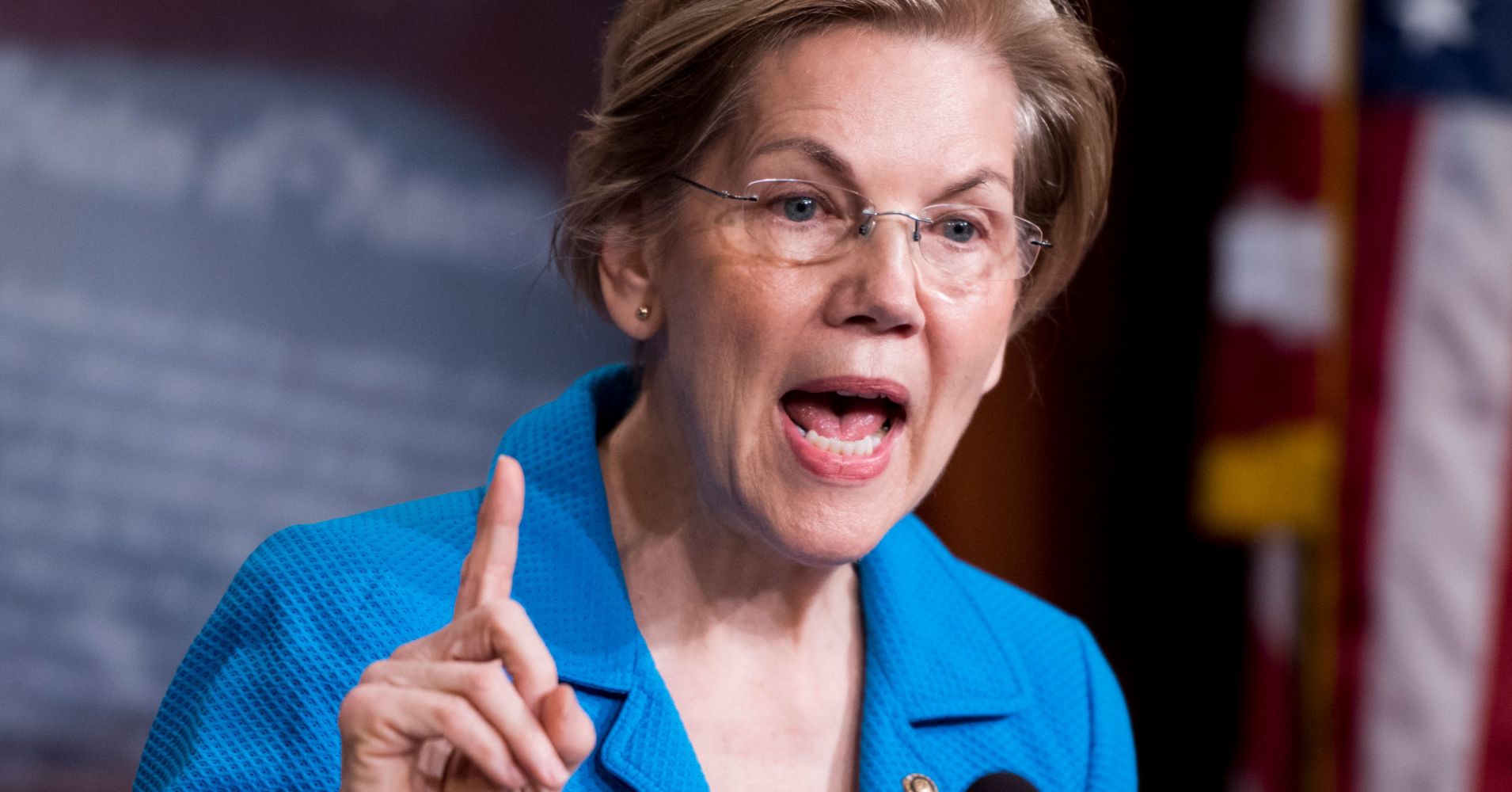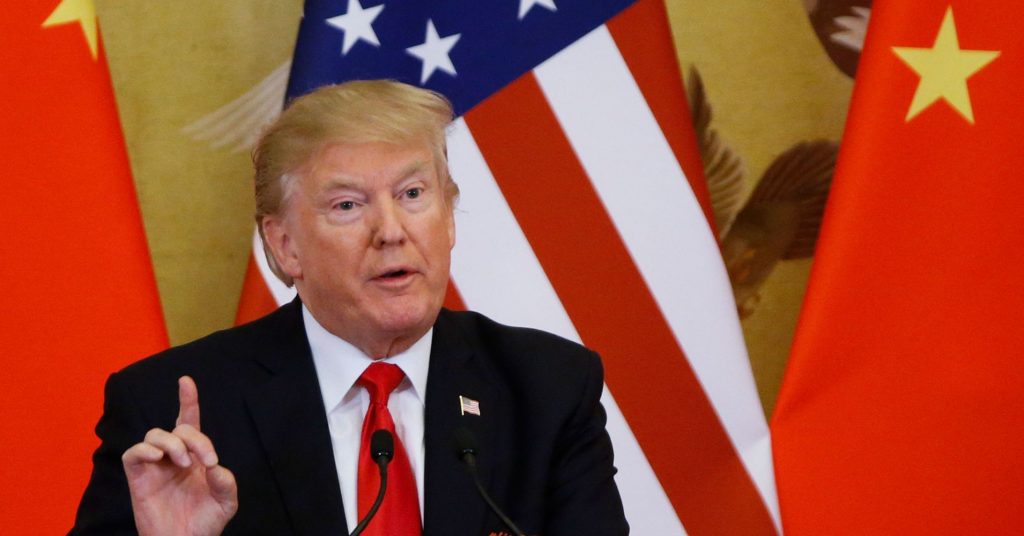
Sen. Elizabeth Warren wants to ban members of Congress and the White House staff from owning individual stocks — and replace them with government-managed investment accounts.
Those are just two of the dozens of proposals dotting the Massachusetts Democrat’s sweeping new legislative package, the Anti-Corruption and Public Integrity Act, which she unveiled Tuesday. Warren said the bill is designed to “eliminate the influence of money in federal government.”
While the measure is unlikely to pass the Republican-controlled Senate, it comes amid speculation that Warren could run for president in 2020. President Donald Trump ran on “draining the swamp,” but his administration has been racked with corruption scandals, while many of Trump’s private businesses have reaped financial gains during the early stages of his term.
Warren’s bill would also impose a lifetime ban on lobbying for presidents and federal lawmakers, and would bar U.S. lobbyists from using foreign cash to affect American policy. It would slap new taxes on “excessive lobbying” of more than $500,000 a year. It would bind Supreme Court justices to a code of conduct recognized by other federal judges.
And, in an apparent jab at Trump, the measure would require presidential candidates to share years of previous tax returns and continue doing so every year if they win. Trump broke with tradition and did not release his tax returns during the 2016 campaign.
But in remarks she made Tuesday morning at the National Press Club, Warren said that the roots of political corruption, which have eroded Americans’ trust in the government, go back decades before Trump took office.
“This problem is far bigger than Trump,” Warren said. “It is a crisis. A crisis of faith.”
Warren’s proposal also arrives about two weeks after Rep. Chris Collins, R-N.Y., was indicted and arrested by federal law enforcement officials on insider trading charges related to an Australian biotech company of which he was a board member. Collins suspended his re-election campaign in his Trump-friendly district in upstate New York a few days later. Collins has pleaded not guilty to the charges.
In pursuit of ending “both the appearance and the potential for financial conflicts of interest,” Warren’s bill would prohibit federal lawmakers, judges, Cabinet secretaries and other senior congressional staff from owning individual stocks while in office. It would also bar all government officials from holding stocks the value of which might be influenced by their work in office.
As an apparent alternative to individual stock ownership, the bill would create “conflict-free investment opportunities for federal officials with new investment accounts,” according to a synopsis of the bill obtained by CNBC.
These accounts would be managed by the Federal Retirement Thrift Investment Board, an independent agency established during the Reagan administration that boasts fewer than 300 employees.
A source familiar with the legislation, who spoke on the condition of anonymity, said it would establish so-called Federal Employee Investment Accounts for senior officials to maintain their stock and securities investments. They can divest from their conflicted assets, the source said, and “temporarily invest the resulting funds” into the federal accounts.
Officials would be able to withdraw their funds from the government accounts “at any time without penalty,” the source added.
On Monday, Warren, a longtime critic of Wall, teased her new bill by highlighting what she called “examples of how corruption has seeped into Washington” in a series of tweets.
Her list of targets included Trump administration officials such as Education Secretary Betsy DeVos, former Health and Human Services Secretary Tom Price and former EPA chief Scott Pruitt. The latter two left the administration under a cloud of scandal.
She accused Citibank of working to erode financial regulations, and criticized Exxon Mobil, which she said employs nearly two dozen lobbyists who previously worked for Republicans and Democrats on Capitol Hill.
Warren’s new push to sever corporate power from the federal government follows another proposal she outlined less than a week earlier called The Accountable Capitalism Act. That bill would establish a system of federal charters requiring company directors to consider the broader impact of their actions beyond solely their own shareholders.
“My proposal says, ‘Let’s get a little accountability into the system,'” Warren said in an interview last week with CNBC’s Jim Cramer.
She was also asked to respond to criticism that her proposals were merely part of a bid to run for president in 2020.
“First of all, I am running for Senate,” said Warren, who is up for re-election this year but is favored to win easily. “But let me say, these are the things I’ve worked on all my life.”

